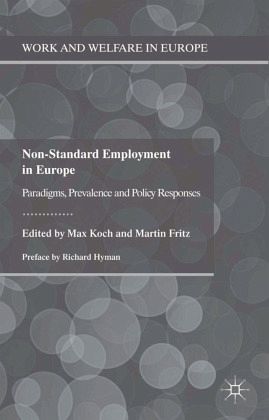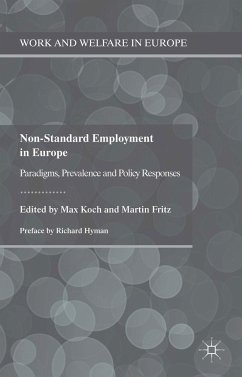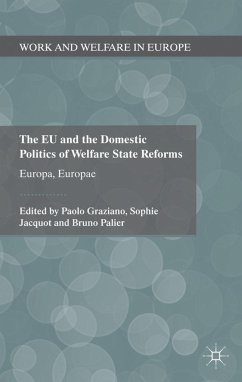
Non-Standard Employment in Europe
Paradigms, Prevalence and Policy Responses
Versandkostenfrei!
Versandfertig in 6-10 Tagen
38,99 €
inkl. MwSt.
Weitere Ausgaben:

PAYBACK Punkte
19 °P sammeln!
Postwar employment standards are being undermined and 'non-standard' employment is becoming more common. While scholars have pointed to negative consequences of this development, this volume also discusses the evidence for a new and socially inclusive European employment standard.












